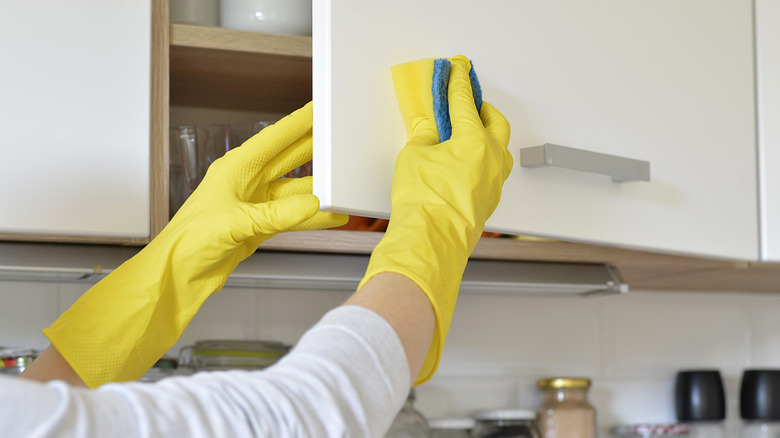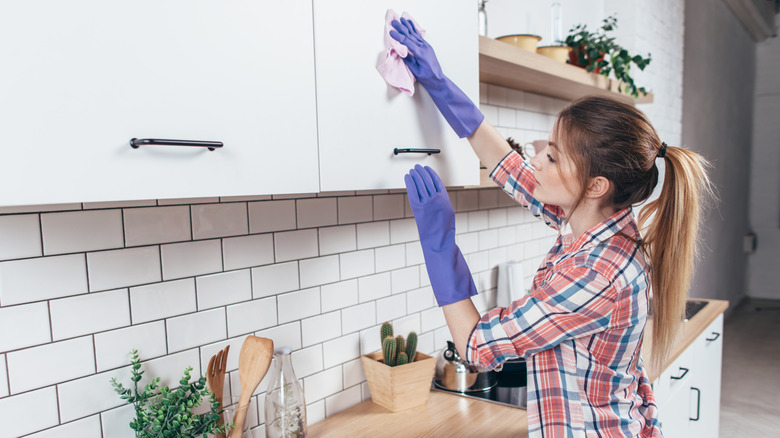The 2 Pantry Staples That Will Clean Grease Off Kitchen Cabinets Once And For All
Whether you're trying to clean up cooking oil spills or remove rust from cast iron skillets, you don't always have to reach for store-bought cleaners. This is especially true if you're trying to degrease your kitchen cabinets, as you probably already have two powerful pantry staples to get the job done — vinegar and baking soda.
Vinegar is an insanely powerful cleaner thanks to its highly acidic nature. From killing weeds to removing stubborn grease, there's very little it can't do around the house. Just spray it on your cabinets, let it sit for five minutes to work its magic, and then wipe it clean with a soft cloth before rinsing off any leftover residue. However, since it's so powerful, you'll probably want to dilute it with a one to one ratio of water to prevent it from ruining the paint or sealant on your cabinets. Vinegar can even etch granite countertops, so always remember how potent it is and dilute it even more if you have a particularly delicate paint job.
Baking soda is abrasive enough to remove grease, but not so abrasive that it'll damage your cabinets. To maintain this delicate balance, you'll want to sprinkle some onto a damp cloth and rub the cloth in delicate, circular motions. Letting the baking soda itself do the heavy lifting prevents damage to your cabinet's finish while still tackling the tough grime of cooking oil. Still, if you have particularly stubborn grease, there are ways to upgrade the cleaning power of both vinegar and baking soda.
How to upgrade vinegar and baking soda for cleaning grease
If you've put off cleaning for too long or had an especially grease-heavy cooking day, even vinegar and baking soda may need a little help cleaning your cabinets. When deciding how to upgrade them, remember that these are still potent cleaners, so only add gentle cleansers and avoid anything too harsh like stiff bristle brushes or bleach.
By adding a few drops of dish soap to your vinegar-water mixture, you add another layer of grease fighting power without risking the finish, paint, or sealant on your cabinets. Vinegar is great at breaking down oil molecules, but dish soap breaks them up into smaller groups, giving your acidic cleaning agent an easier job. Plus, just like adding lemon juice or essential oils, it helps cover up vinegar's harsh smell.
If baking soda still isn't doing the job, try using it in a paste form instead. A simple mix of two parts baking soda, one part dish soap, and one part water combines abrasiveness and grease cutting power in a way that shouldn't damage your cabinets. However, if you really need to bring the heat, try also adding one part vinegar to the mix. Between the rough nature of baking soda, the way dish soap breaks up groups of oil molecules, and vinegar's ability to actually eat away the oil itself, you'll have the cleanest cabinets in the neighborhood.


